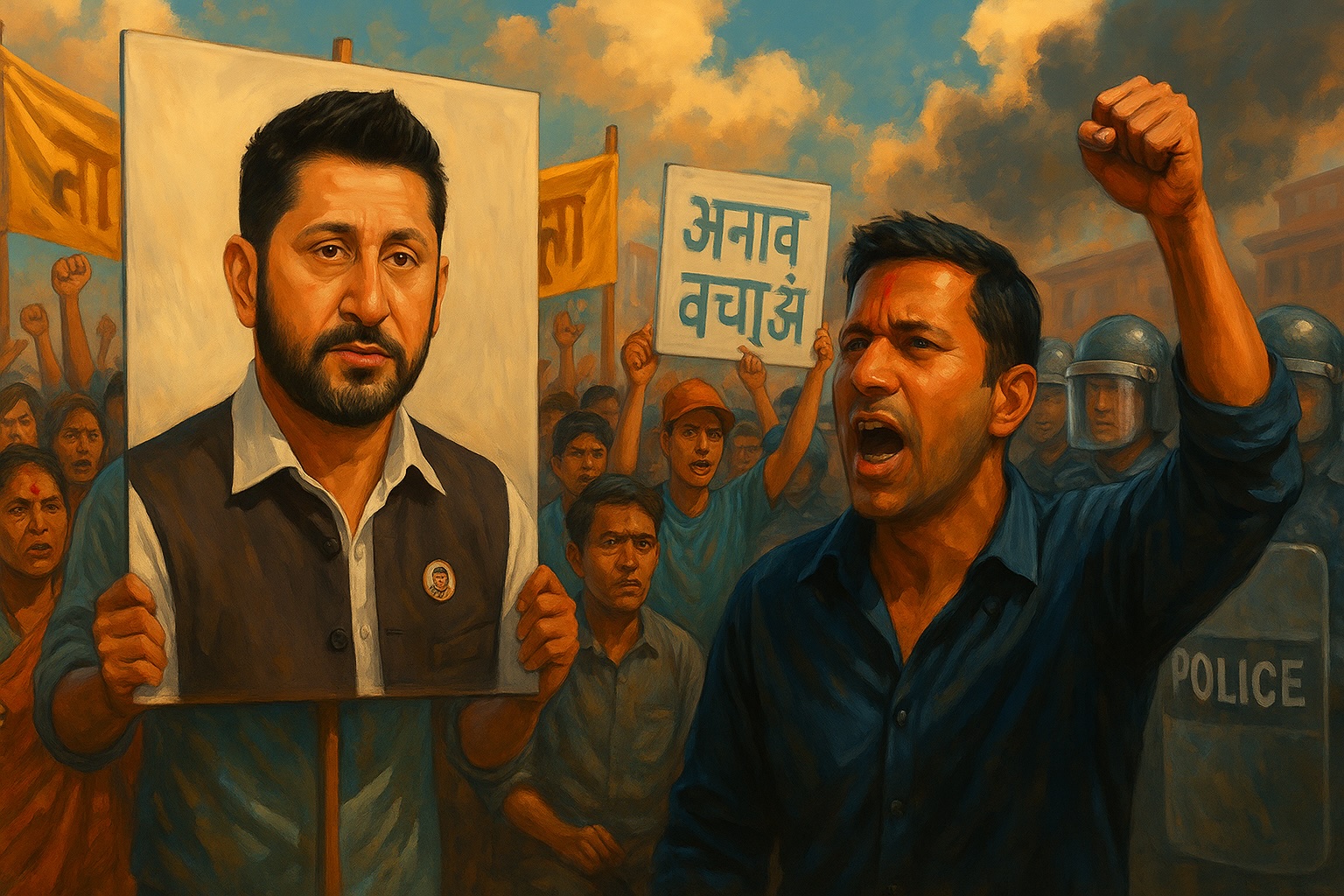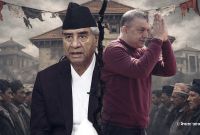Public Opinion or Legal Authority? Who Will Decide Rabi Lamichhane’s Guilt?
30 Million Signatures or Justice? RSP’s Campaign Sparks Fears of a New Trial by Mob

The Rastriya Swatantra Party (RSP)’s latest nationwide “solidarity” signature campaign has ignited a storm of controversy, as critics warn it could undermine Nepal’s judicial process in a high-stakes cooperative fraud case involving its president, Rabi Lamichhane. What began as a show of support for a party leader under investigation has now ballooned into a political campaign that some believe is dangerously close to orchestrating a public trial outside the courtroom.
Launched on June 21, 2025, coinciding with RSP’s third anniversary, the campaign called on citizens across Nepal to sign a petition demanding the release of Lamichhane. Party officials described his detention as politically motivated, labeling it an attack on "clean politics." Signature booths sprang up across Kathmandu—from Basantapur to Balkhu—and in all 77 districts nationwide. Supporters rallied in the thousands. In Sarlahi alone, over 20,000 signatures were collected in a few days.
Among those joining the campaign were popular actors, directors, and members of marginalized communities, such as the Rautes. Their participation was heavily publicized to project a picture of national unity behind Lamichhane. Yet the campaign’s scale and emotionally charged messaging have raised a chilling question: can public opinion replace judicial verdicts?
Legal scholars and political figures have sounded the alarm. Surya Bahadur Thapa Chhetri of the CPN-UML called the campaign “political propaganda” meant to manipulate court proceedings. Others have warned that such movements, especially when held before any verdict is delivered, pose a serious risk to judicial neutrality. The collection of personal data, including phone numbers from signatories, has added another layer of concern, raising fears of voter profiling and political surveillance.
Swagat Nepal, a lawyer and member of a rival political party, publicly mocked the campaign and strongly denounced its intention to influence an ongoing legal process. In a biting remark, he stated that he "could collect 30 million signatures in one hour in one room," underscoring the futility and theatrical nature of such campaigns when set against the rigor and impartiality of the judiciary.
Observers have drawn unsettling parallels between the RSP’s efforts and the Catholic Church's 400-year denial of Galileo Galilei’s astronomical truth. Just as the Church refused to accept science and punished those who challenged its doctrine, critics argue that the RSP is refusing to accept the authority of the judiciary, seeking instead to sway public perception and preempt legal judgment. If mass mobilization can pressure judges, then the foundation of Nepal’s justice system may be at risk.
“If the sun rises from the west, and 30 million people agree, does that make it true?” asked one legal analyst, highlighting the absurdity of replacing due process with popularity metrics. The question now confronting the nation is profound: if Rabi Lamichhane is found guilty by the Supreme Court, who will take responsibility for encouraging mass defiance against the ruling?
The controversy cuts deeper than a single case. At stake is the principle that courts—not crowds—determine guilt. While political parties have every right to rally support for their causes, orchestrating nationwide pressure campaigns in the middle of ongoing legal proceedings sets a precedent that could erode the separation of powers. If every high-profile defendant launches a national petition for exoneration, will Nepal’s courts be reduced to ceremonial rubber stamps?
RSP's petition may be framed as a populist expression of support, but in reality, it has blurred the boundary between democratic participation and judicial interference. As the legal process unfolds, Nepal now finds itself at a moral and institutional crossroads. Will truth be decided by the court—or by the crowd?





![From Kathmandu to the World: How Excel Students Are Winning Big [Admission Open]](https://nepalaaja.com/img/70194/medium/excel-college-info-eng-nep-2342.jpg)


